All over the world, every December 5 is celebrated as International Volunteer Day. This day was established in 1985, and according to UN data, more than 862 million people over the age of 15 volunteer in the world every month.
This day is also an ideal occasion to present an organization that advocates for the development and promotion of volunteerism and contribution to the community through volunteering.
The Foundation Volunteers of Montenegro has been organizing volunteer activities throughout Montenegro since 2013, providing support to other organizations, educating, and raising awareness about the importance of volunteer work.
Marina Došen, program coordinator, told us how the Volunteers of Montenegro help, support, and improve the lives of thousands of people in their community.
How was the Volunteers of Montenegro Foundation founded? How did your mission develop?
Marina: Foundation Volunteers of Montenegro was created on the initiative of a dozen young people from Nikšić. We wanted to help vulnerable fellow citizens, realizing that the system's institutions were not doing their job. We have been guided by the same idea for almost ten years: creating services for all vulnerable categories. There are many reasons behind our establishment and our work so far.
Our mission is to help individuals and vulnerable families. Through transparent examples of solidarity, we strive to contribute to incentives and popularize humanitarian work. Volunteerism is certainly one of the most significant forms of activism. We knew that we would allow young people to express solidarity, develop their personality, gain new knowledge and acquaintances, and much more. Connecting a humanitarian organization and young people is a path that leads in the direction of a society of valuable and capable members ready to initiate action for the common good.
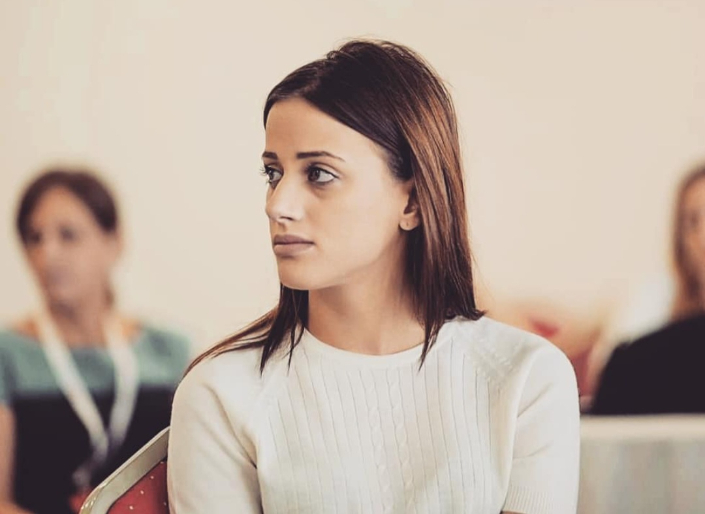
Marina Došen
What motivated you to work in the non-profit sector and this type of engagement?
Marina: My motivation was the desire to do something that fulfills me and, at the same time, the possibility of providing help to people who need it. I volunteered for three years continuously before my first professional engagement.
It's a nice feeling when you can see the results of your work on the street, on the faces of fellow citizens, primarily on the faces of children. It isn't easy to visit the youngest, who do not have the primary conditions for a dignified life. Many children from families who are our users do not have a bathroom, food, or wardrobe... A toy or candy cheers them up a lot. These examples show how humble and grateful they are for help. I received drawings from them and some of their toys, expressing gratitude for being with them in the most challenging moments. Work in the non-profit sector is often volunteering, that is work without monetary compensation.
How are the Foundation's activities financed? Which types of donors do you cooperate with, and in what way? In what ways can those who want to support your activities?
Marina: The work of the Foundation is financed from several sources. The citizen is the biggest donor of all our actions. We collect donations using our platform, which allows donating without going to the bank. Also, a big donor is the business community, companies from Montenegro that donate goods or services. We also focus on collecting donations in supermarkets, where citizens can donate some of the necessities of life and food to the most vulnerable after shopping for their needs. Due to a lack of funds, my colleagues and I often donate our funds to realize some of our activities. For the Foundation to be maintained, it is necessary to have space, essential means for work, funds for promotion, professional staff, and many costs. We try to keep these costs to a minimum so that they can be redirected to assist our users.
Everyone who recognizes the quality of our work can support it by donating funds, goods, or services necessary to assist our users.
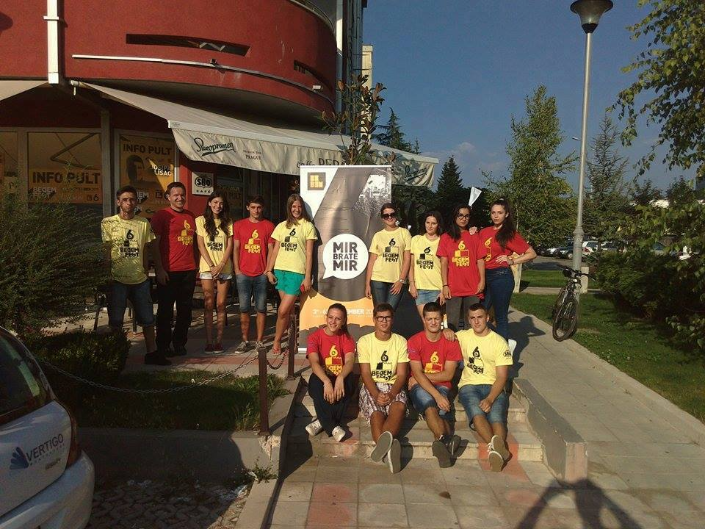
Bedem fest
What activities are you most focused on right now? What are the most important goals and plans you want to realize?
Marina: We are currently focused on the campaign that we are conducting to collect funds for the treatment of our fellow citizen Vasilije Ćuzović who has autism. Vasilije needs 20,000 euros to be treated with stem cells in Belgrade. We raised around 15,000 euros in less than five days, which is a huge success. In addition to this action, we are currently preparing a large number of activities that will be implemented to mark International Volunteer Day, namely educational workshops for the youngest, humanitarian actions for socially vulnerable families, and the action of awarding New Year's packages.
We want to increase the number of volunteers during the next year because this is crucial for a greater positive impact on young people and an increase in the quality of the social services we provide.
How do you involve the community in your work, and what does that bring you?
Marina: We include the community in all segments of work. Citizens participate in fundraising, planning, and implementation of activities. We maintain constant communication through the website, social networks, and direct communication. Also, we try to have constant and high-quality communication and cooperation with institutions that deal with our users' problems. When the community takes part, the problems and needs of citizens are better mapped, and better results are achieved with joint efforts. For example, citizens better understand the socio-economic conditions in which their fellow citizens live when they go to the field as part of humanitarian actions than when they read articles about such cases. When you see how many people live on the edge of existence, you begin to appreciate everything you have and increase your empathy towards everyone who needs your help.
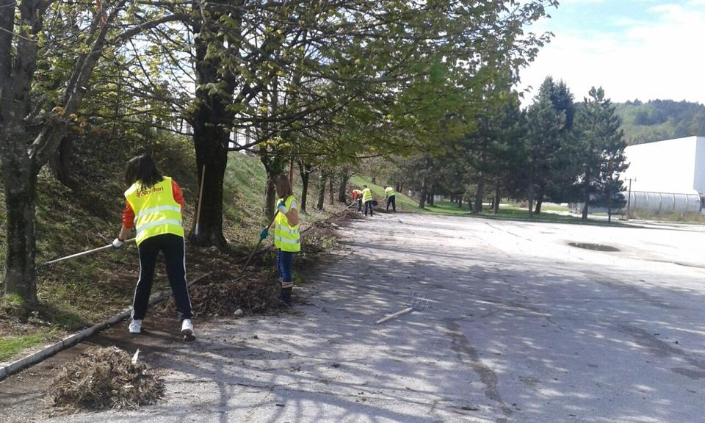
How important is volunteerism for community development? How developed is the culture of volunteering in Montenegro, and how can it be improved?
Marina: Volunteers are citizens who understand the importance of action in the community; they are people who are humane, in solidarity, and aware of all the hardships of the most vulnerable. I believe that the system does not recognize them as such, nor does it motivate them for further action. In practice, we come across many cases of abuse of volunteers and volunteer work; the legal framework is not the most orderly, the bases are few, and we do not know the exact number of volunteers in Montenegro today. Many organizations do not run bases, do not conclude contracts with volunteers, insure them, or include minors without parental consent. It is necessary to pass the Law on Volunteering as soon as possible and to actively supervise and control all organizers and users of volunteer work.
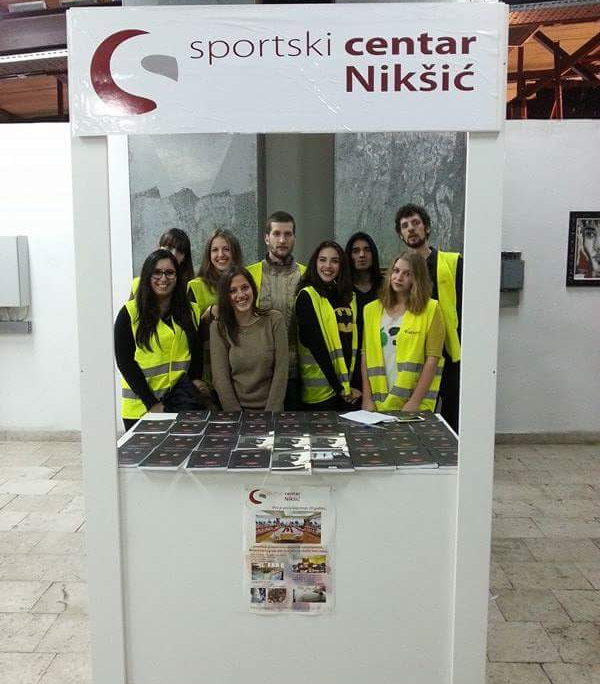
How do you assess the state of charity in Montenegro? What needs to be worked on to develop it even more?
Marina: The citizens of Montenegro are humane; almost every day, we have examples that show that. Even when they go abroad, they often donate to the most vulnerable. We see on the ground that citizens who do not have a good financial status donate the most. There is always room for better and more. However, we understand that the situation is generally not great and that everyone feels the consequences of the crisis. The system's institutions must start doing their job because it seems that citizens are increasingly taking that role and doing their job. When you have hungry fellow citizens, you don't think about whose fault it is; you are there to help them. But we don't want to feed "poverty"; we have to work on the causes, increasing citizens' employability, increasing wages, and generally creating better conditions for everyone. Institutions should work on it more actively to have better and more open communication with citizens. The non-governmental sector was and will remain an active participant in that process.
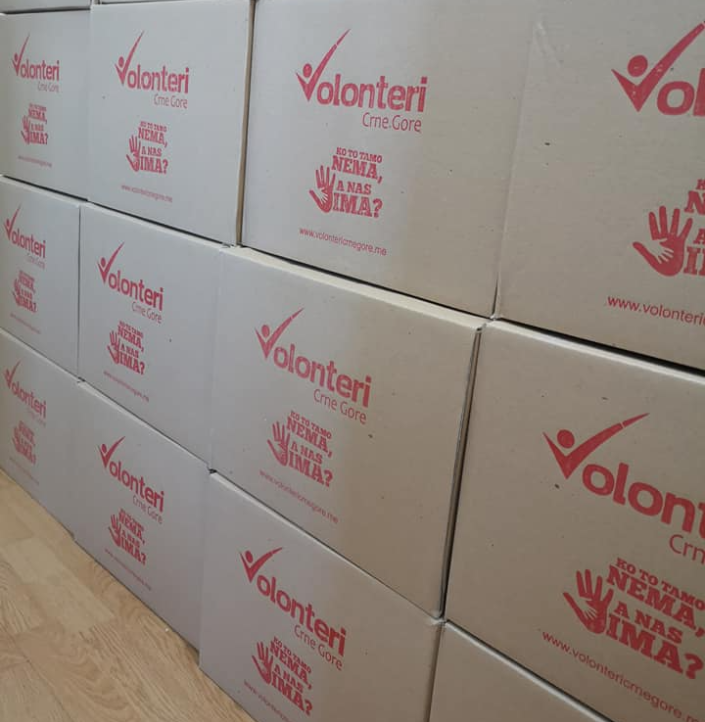
In what way do you think that the Volunteers of Montenegro Foundation contributes to the development of philanthropy in Montenegro?
Marina: Montenegrin volunteers have been promoting humanity, solidarity, volunteerism, and philanthropy for almost a decade; it seems to us in the best possible way. We actively help the most vulnerable, educate young people, network with all social partners and set an example to other community members that anything is possible when a person has the will and knowledge. To date, we have donated more than 100,000 euros in money, food, and services to the citizens of Montenegro. Of course, all of the above would not have been possible without cooperation with the business community and the biggest philanthropists of Nikšić and Montenegro.
What are the biggest challenges you face at work?
Marina: The biggest challenge for us is maintaining the trust of citizens. We try to justify the trust of both the citizens who help our activities and the trust of the citizens who use our services. It is precisely for this reason that we are very careful because, unfortunately, we also meet people who want to use people of goodwill and us to satisfy some of their negative ambitions. We hope that the citizens will always have in us a faithful accomplice in the process of creating a better society for all of us.
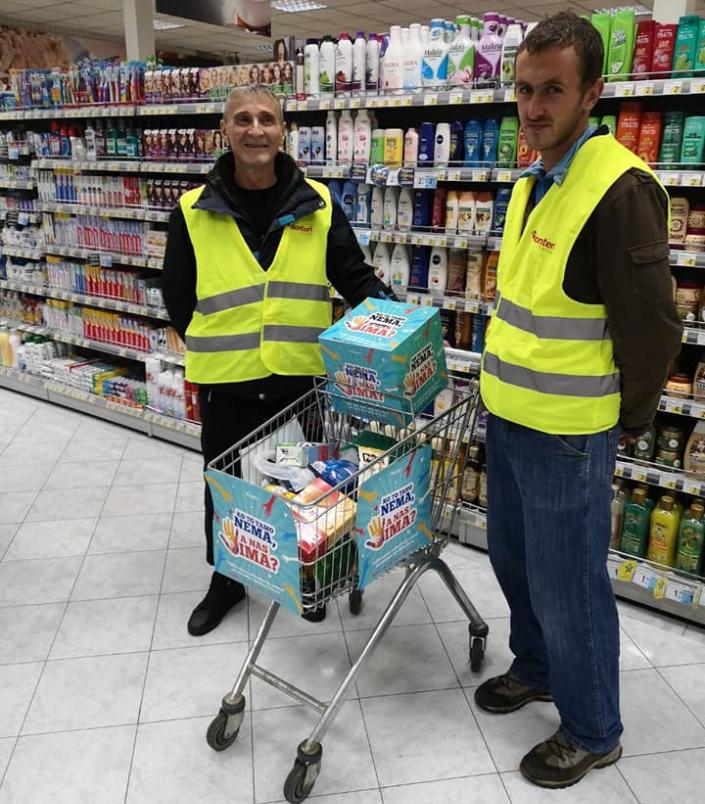
What do you see as the biggest success in your work, and what do you still want to achieve?
Marina: The greatest success is the trust of volunteers and users of our services, which points to the quality of our work so far. We want to reduce poverty in Montenegro and increase the quality of our services through education and networking with close organizations with the same target group.
Instead of a conclusion, there is also a first-hand experience, which was shared with us by Mirko Pavićević, one of the volunteers of the Foundation. We believe that his story will motivate you to contribute to your community through volunteer work. Volunteers of Montenegro are the right address for you if you are from Montenegro. If you want us to share volunteering opportunities from the region with the world, write to us, and we will be happy to do so.
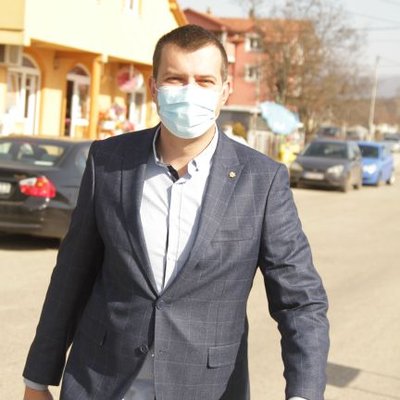
Mirko Pavićević
"The experience I gained as a volunteer in the Volunteers of Montenegro Foundation is priceless, and there is no way to describe it. Being humane and serving citizens going through difficult life situations is an opportunity to learn to be a good person. Also, I would highlight my experience in quality work on projects and learn about writing projects in the social protection of vulnerable populations. The obligation of every young man today is to spend his free time in the right way, so I invite them to join the Foundation's volunteer club and learn how to become a man."
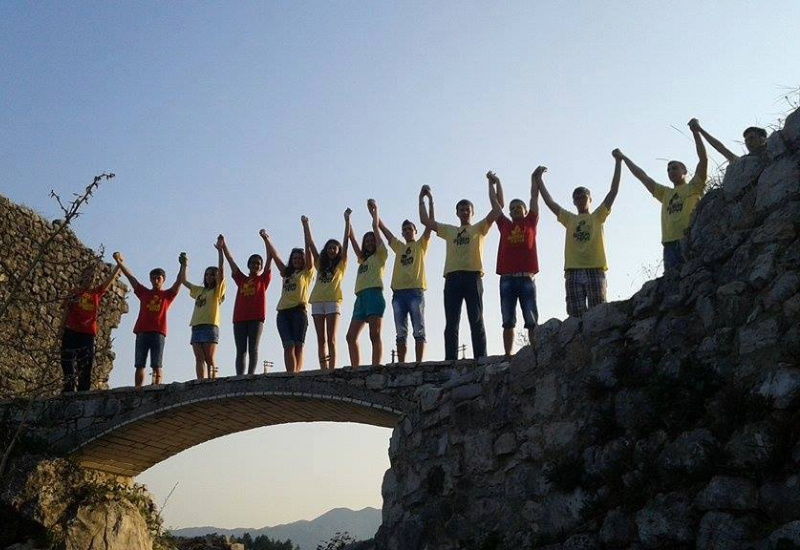

Leave a comment